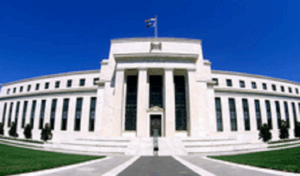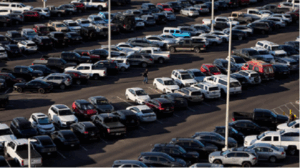Recent changes in Canada-U.S. relationship affecting Canadian musicians’ tour plans
The full effect of the U.S. tariffs hasn’t entirely reached store shelves but small business owners who travel across the border to earn money performing face new questions about their access to the American market.
Canadian musicians are small business owners – CEOs of their brand and content – who rely on an American audience which has defined generations of popular music with its size and influence.
Eric Alper is a music commentator and artist representative in Toronto. He said recent changes to the relationship between the two countries are affecting everything.
“I think the artists are starting to get a little bit fearful of their worst-case scenario,” Alper said in an interview with CTV’s Todd Battis. “I think in some cases, in some aspects of it, it’s actually coming true.”
Alper said political instability and unrest during the election year and now the Trump presidency are frightening musicians who have always had to work hard to break into the lucrative American market.
“Some of the musicians are fearful of getting stopped at the border and having the border guards go through their phones or social media.”
Silencing social commentators
Alper said many musicians “lean Liberal” and might be scared something they wrote could be used against them. He said artists, including one who was stopped in Ohio for a traffic violation, are facing questions about their voting practices and political beliefs that could have repercussions.
“For artists, the wrong answer might actually not just boot them out of the country but ensure that they never get to travel the U.S. ever again,” Alper said.
People have always looked to musicians to be truth tellers and truth seekers who share their world view and reveal what’s going on “behind the scenes” but now they are afraid to speak out, Alper said.
“They fear for their families as well on social media,” he said. “Getting doxed and having their information spread.”
Choosing to stay home
Alper said it’s a bad time to be a musician with a social conscience but there are practical considerations too. He said a lot of Canadian musicians are choosing not to tour in the U.S. this summer.
“There are a number of music festivals that have gone all Canadian.”
Alper said it will be interesting to see the effect of so many artists staying home and giving up potential income.
“We are four per cent of the world market here in Canada when it comes to music,” he said.
“We talk about a glass ceiling that this country has with only 32, 34 million people as opposed to 350 million people in the U.S.”
Alper said Canadians are going to have to figure out how to support the artists who decide to stay.
Bigger artists playing smaller towns
Alper said musicians are struggling to get visas because of new delays in the process and the rising price. “The cost for having a visa has gone through the roof.”
Alper said Canadian bands are now paying up to $460 per band member plus crew. He said for artists who are building their career and playing in front of small crowds it just doesn’t make financial sense.
For smalltown Canadians it could mean bigger shows from musicians who need to supplement their income but often cherry pick larger venues.
“I think this year you’re going to see a lot more smaller towns get a lot more bigger artists,” Alper said.
“They’re playing in churches. They’re playing in community centres. They’re playing in retail stores. They’re playing wherever there’s going to be people this year.”
This article was first reported by CTV News














